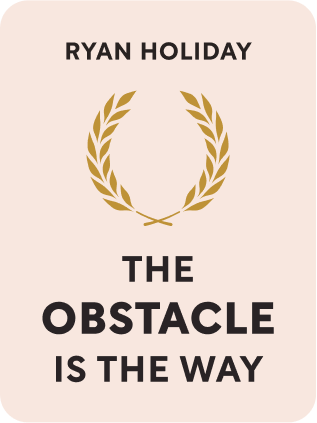

This article is an excerpt from the Shortform book guide to "The Obstacle Is The Way" by Ryan Holiday. Shortform has the world's best summaries and analyses of books you should be reading.
Like this article? Sign up for a free trial here .
What does it mean to be a Stoic? What makes a Stoic different from an average person?
Stoicism is an ancient Greek personal ethics philosophy that teaches the development of emotional self-control and mental toughness as a means of overcoming life’s trials and tribulations. But what does it mean to be a Stoic person? What personal qualities do Stoics embody?
Keep reading for the answer to the question: what does it mean to be a Stoic.
What Does It Mean to Be a Stoic?
Stoicism is an ancient Greek philosophy that teaches imperturbability by external events and equanimity in the face of life’s highs and lows. But what does it really mean to be a Stoic person? Here are the three most fundamental qualities exhibited by true Stoics.
Stoics View the World Dispassionately
Typically, we assign meaning to events—for instance, whether they’re good or bad. In contrast, Stoics view events neutrally (as they are) so they can better understand them. John D. Rockefeller’s response to the Panic of 1857 is an example of the Stoic attitude to outside events.
(Shortform note: The Panic of 1857 was a national depression triggered when Europe cut back on buying U.S. agricultural products.) The crisis began in Ohio, where Rockefeller was a neophyte investor in Cleveland. As businesses failed, and stock and grain prices plunged, a depression took hold.
Rather than panicking as others did, Rockefeller viewed the financial crisis as a learning opportunity. He closely watched how others behaved; he learned from others’ mistakes and took advantage of them.
Stoics Take Deliberate Action
When faced with the need for action, we often procrastinate and make excuses. We may analyze the problem and even map out solutions. But ultimately, we don’t do anything, as if we expect the obstacle to disappear on its own. In contrast, Stoics approach difficult circumstances through action.
A great example of this quality is the ancient figure of Demosthenes, a Greek statesman and orator of ancient Athens. Demosthenes became Athens’s greatest orator, but it required overcoming obstacles through deliberate action.
As a child, Demosthenes was sickly and had a speech impediment. His father died when he was seven, and his guardians stole his inheritance. However, as a young man, Demosthenes worked diligently to overcome his speech impediment—for instance, he practiced speaking clearly with pebbles in his mouth. He eventually became a skilled orator and defeated his former guardians in court.
Stoics are Strong-Willed
When an obstacle or situation blocks their actions, Stoics exert will to transform the situation into something that benefits them. Abraham Lincoln is an excellent example of a strong-willed character, which gave him the ability to accept and prevail over the worst circumstances.
Throughout his life, he fought severe depression, which could be incapacitating and nearly led to suicide twice. Depression, however, was just one of the great difficulties he faced in his life; others included poverty, losing his mother when he was a child, educating himself, and losing a woman he loved.

———End of Preview———
Like what you just read? Read the rest of the world's best book summary and analysis of Ryan Holiday's "The Obstacle Is The Way" at Shortform .
Here's what you'll find in our full The Obstacle Is The Way summary :
- Why you should think of any obstacles as opportunities
- How Stoicism can show you the way to overcome challenges
- How Theodore Roosevelt's struggle with asthma prepared him for future struggles






